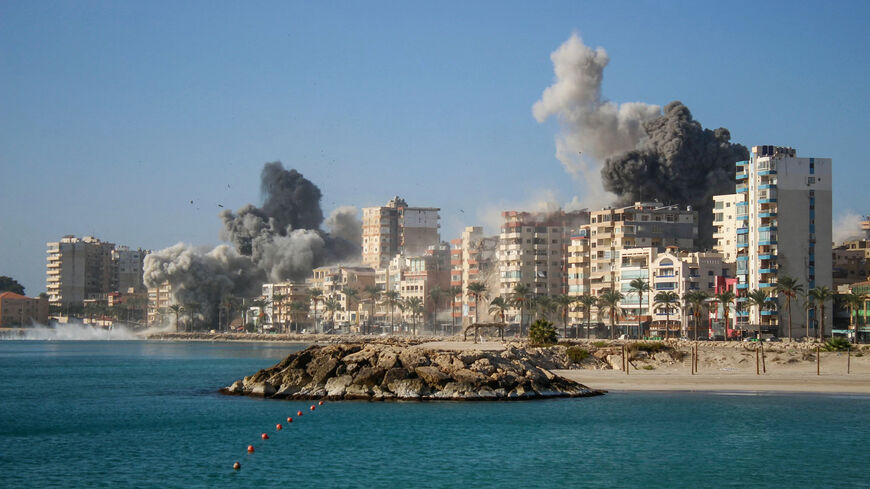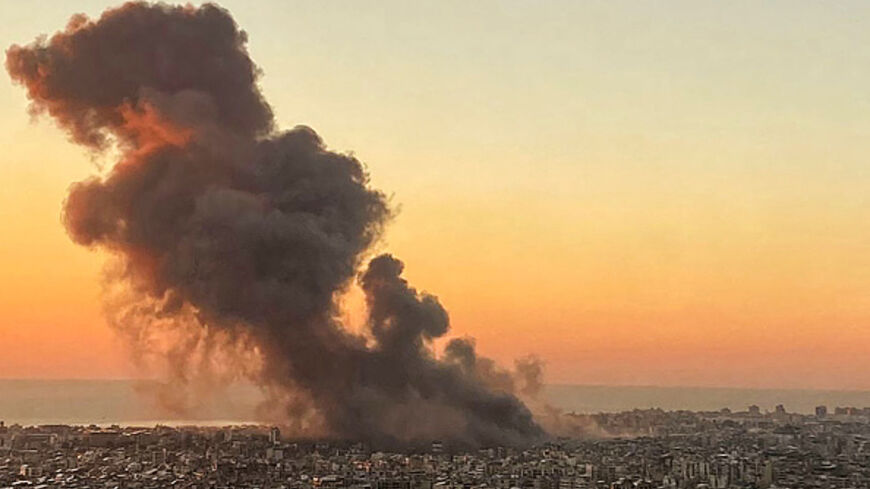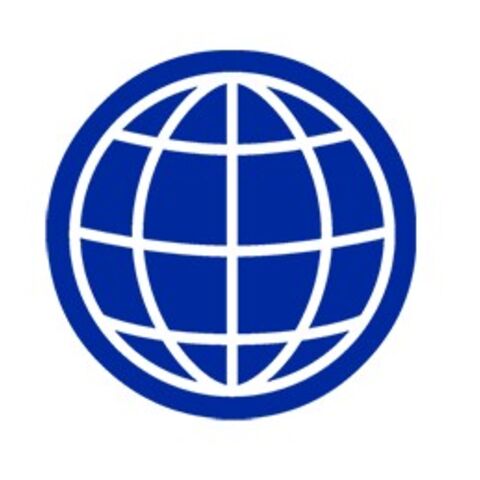Israel strikes Beirut for first time since Hezbollah-Israel ceasefire: What to know
Hezbollah denied involvement in rocket fire targeting Israel as the strikes threaten the already fragile ceasefire between the two.

BEIRUT — Israeli warplanes launched at least three airstrikes in Beirut on Friday, according to local media, shortly after the Israeli military issued an evacuation order for a building in the southern suburbs of the Lebanese capital, a known Hezbollah stronghold called Dahiyeh.
No casualties have been reported so far.
The strikes, the first to hit Beirut since a ceasefire between Israel and Hezbollah went into effect on Nov. 27, came after two rockets were launched from southern Beirut toward Israeli territory earlier on Friday.
غارة استهدفت الضاحية الجنوبية لبيروت pic.twitter.com/uILa2vaGqt
— LBCI Lebanon News (@LBCI_NEWS) March 28, 2025
The Israeli military said one of the rockets was intercepted while the other fell on Lebanese territory. Hezbollah’s media relations department cited a source from the group as denying any responsibility in the rocket attack and stressing, “Hezbollah is committed to the ceasefire agreement.”
It was the second such attack from Lebanon since November. Three rockets were fired toward northern Israel last week, which Hezbollah also denied involvement in.
The Israeli military's Arabic-language spokesperson, Avichay Adraee, issued an urgent evacuation warning early Friday to residents of the Dahiyeh neighborhood of Hadath.
People and cars were seen fleeing the area ahead of the strike as Israeli drones hovered over Dahiyeh and other areas in Lebanon.
تهديدات بالاخلاء في الضاحية و حالات من التخبط بين السكان في المنطقة. pic.twitter.com/49sArEImFy
— الآغا #طرابلس (@aghaK77) March 28, 2025
Israeli warplanes also launched a series of airstrikes on a number of villages in the south at what the military said were Hezbollah targets.
Lebanese President Joseph Aoun, who is in Paris, is in contact with international actors to pressure Israel to calm the situation, according to local media.
Lebanese Prime Minister Nawaf Salam held an urgent meeting with security and military officials in Beirut to discuss the necessary steps to avoid further escalation.
Friday’s exchange marks a serious escalation between Israel and the Iran-backed Hezbollah and threatens the already fragile ceasefire that ended a 13-month war between the two parties. Despite the ceasefire, the Israeli military continued to strike what it says are Hezbollah targets in the south and the Bekaa region in the east.
The conflict between Hezbollah and Israel erupted on Oct. 8, 2023, after Hezbollah launched rockets and mortars at Israeli positions in support of Hamas in the Gaza Strip. The cross-border hostilities escalated last September into a full-scale war that killed nearly 4,000 people and injured over 15,000 others in Lebanon. Meanwhile, Israeli authorities say Hezbollah attacks in Israel killed at least 45 civilians and 73 soldiers.








